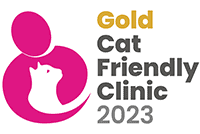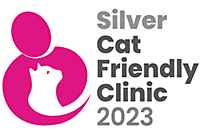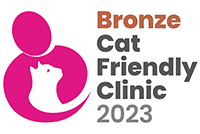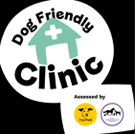Could you please introduce yourself and tell us a little about your career to date?
I am Dr Nathan Srebernik, ever since I was a child I was surrounded by animals that I loved and cared for. As I grew up, I began taking a real interest in Medicine and Science and becoming a vet. I graduated in Italy and then came to the UK and passed my membership exams in Bristol. Since then I worked first in the Royal Vet College and then for the last 25 years as a Vet in small animal practice in London mostly.

Tell us about your own pet
I have had different pets over the years including cats, dogs and rabbits.
At present, I have 2 lovely dogs, The older one Alfie, dainty and somewhat aloof and Milo the younger black cockapoo, loving, trusting and rather panicky!

What challenges you the most about being a vet?
It is the commitment to the animals under my care. To go beyond in looking after them and their owners. It is not just about the medicine but knowing that there was something that I could do to help. It is also about communication, trust and taking the journey together with the clients in the good times and the bad times too.
Why did you choose Village Vet?
I have worked for Village Vet before for several years. I have always admired the professionalism, the quality of client care and the friendliness, not only to the clients and their pets but also amongst the members of staff with truly fantastic teamwork.
At your practice, what are some of the most common preventable ailments that you come across and can you provide us with top tips in relation to them for pet parents?
The common conditions are still around and we should always remember to follow the basics in this fast-moving life of ours.
Please vaccinate your pets because risks from a disease such as Leptospirosis and Parvovirus do show up from time to time and can have serious consequences.
Please deworm your pets- Remember that worm life cycles can involve young and old people with a serious disease as a consequence.
In addition, do remember the lungworm risk for your dogs.
Finally, neuter your dogs and cats!- seek our advice about the best time- remember that un-neutered cats, for example, can be affected by a fatal viral disease called FIV, that is transmitted by biting, often by feral tomcats.
Un-spayed female dogs are also at increased risk of developing a serious uterine infection (pyometra) as they get older.











